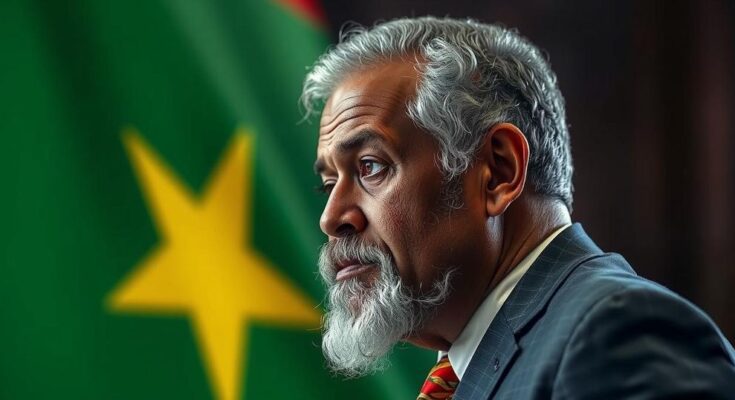Sudan is at risk of becoming a failed state amid increasing violence and disintegration of civil society, with Jan Egeland of the Norwegian Refugee Council warning of severe humanitarian crises, including hunger and displacement. The ongoing power struggle between the army and the RSF has displaced millions and led to starvation tactics in warfare, demanding urgent international support to prevent further deterioration of the situation.
Sudan is on the brink of collapsing into a failed state due to widespread violence and the fragmentation of civil society, according to Jan Egeland, the head of the Norwegian Refugee Council. He highlighted the dire situation where numerous armed groups, in addition to the primary conflicting factions—the army and the paramilitary Rapid Support Forces—are contributing to the chaos. This ongoing conflict has uprooted over 10 million individuals and exacerbated a severe hunger crisis, with critical shortages of aid and infrastructure to support the fledgling humanitarian response.
In a recent interview, Mr. Egeland expressed grave concerns regarding the escalating humanitarian emergency in Sudan, describing this crisis as unparalleled, citing it as the largest displacement and hunger situation globally at present. The relentless power struggle over the past nineteen months has led to significant civilian casualties, with claims that starvation tactics have become a method of warfare. Aid efforts have been hampered by insufficient funding, leading to the closing of vital soup kitchens and causing aid provisions to merely sustain lives rather than prevent deaths.
According to the World Health Organization, the threat of widespread starvation looms large over Sudan, with estimates suggesting that approximately 2.5 million lives could be lost to hunger by year-end if urgent measures are not initiated. Egeland emphasized that the global community is failing to provide adequate support, urging European nations to invest strategically in humanitarian relief and the promotion of peace in the region to avert further crises, including potential refugee influxes. He pointed out that the peace negotiations between the army and the RSF remain unproductive, highlighting the need for changing the combatants’ calculus about the costs of continuing the conflict to facilitate genuine dialogue and resolution.
The ongoing conflict in Sudan, characterized by a fierce power struggle between the Sudanese Armed Forces and the paramilitary Rapid Support Forces, has resulted in catastrophic humanitarian consequences. The violent strife, which has gone on for nearly two years, undermines not only the stability of the country but also threatens to dissolve civil society and lead to severe human rights violations. With an estimated 10 million people displaced and suffering from dire food shortages, the situation has drawn international concern, particularly regarding the potential for genocide and ethnic cleansing. Egeland’s remarks underscore the complexity of finding solutions to this multifaceted crisis amidst a history of conflict and social fragmentation.
In summary, Sudan is faced with an imminent risk of becoming a failed state as ongoing violence and humanitarian negligence exacerbate the plight of millions. Jan Egeland’s urgent appeal highlights the critical need for international intervention and support, with an emphasis on stabilizing the region through humanitarian aid and peace initiatives. As the conflict continues to escalate with devastating consequences for civilians, the global response will determine the fate of Sudan in the coming months.
Original Source: www.bbc.com




